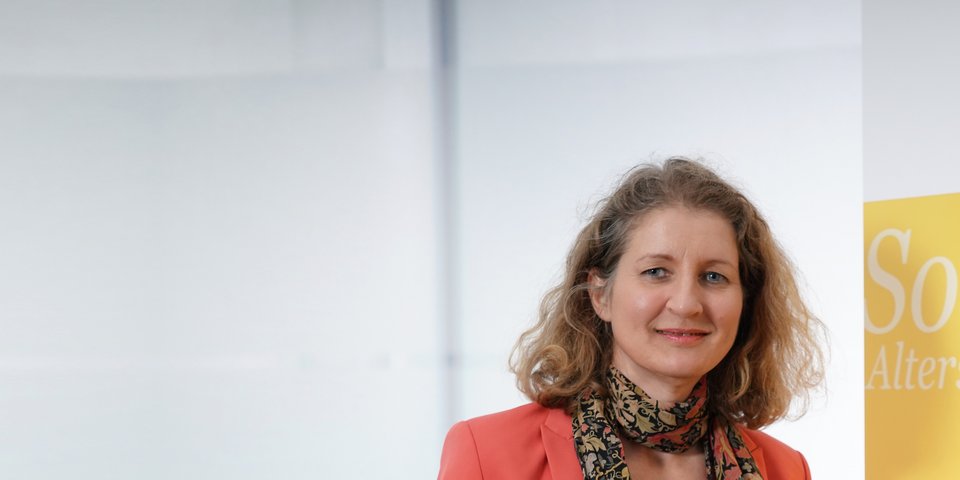
Three questions addressed to Dr Edlyn Höller
Germany’s Council presidency 2020 - The German Social Accident Insurance's view of the situation.
IF – 12/2020
Germany took over the Presidency of the Council of the European Union
from Croatia on the 1st July 2020 along with the major challenges that the EU
faced this year. With the outbreak of the COVID-19 pandemic, social and
healthcare policy issues have become increasingly important across Europe.
Under the motto "Together - Making Europe strong again",
Germany has - during its Council Presidency - set itself the goal of
strengthening social cohesion and working to ensure that Europe emerges
stronger from the crisis. The Council Presidency will be transferred to
Portugal on the 1st January 2021.
What is the result a few days after the last European Council under
Germany’s Presidency? The European representative from the German Social
Insurance spoke about this with Dr Edlyn Höller, deputy CEO of the German
Social Accident Insurance.
What were your political expectations for Germany’s Council Presidency? To what extent have these been fulfilled in your view?
Germany’s
Council presidency was dominated by the coronavirus pandemic. Despite great
challenges, Germany has succeeded in maintaining unity and mutual solidarity.
The NextGenerationEU Reconstruction Fund has taken a decisive step towards
supporting economic reconstruction in the member states, which will also
benefit social security systems.
The
pandemic has shown how important occupational safety and health is to the
economy and society. Therefore, in the sense of prevention, the same high level
of importance should be attached to occupational health and safety even after
the pandemic.
When it
comes to the working conditions of seasonal and mobile workers, the Council has
given impetus to improving health and safety at work and reminded member states
of their responsibility to enforce the relevant legislation. Independently of
the pandemic, Germany’s Council presidency has brought an important issue of
occupational health and safety to the attention of a broader public with the
"STOP cancer in the workplace" conference that was held in the spirit
of the expected European plan to combat cancer.
In your opinion, which topics have been neglected and should have been promoted more strongly?
The
problems arising from the peculiarities of platform-based work remain
unresolved. In addition to guaranteeing access to social security for all
workers, I would have expected the aspect of financing through contributory
social security systems to be addressed more strongly. It is regrettable that
the summit planned on the subject of platform work could not take place as the
recent Council conclusions did not provide any impetus in this respect either.
It would
also have been desirable to address the consequences of demographic change,
which are high on the European Commission’s agenda. They will have an impact on
the financing of social security systems and they will also place new demands
on prevention, in particular with regard to maintaining the employability of
many people.
What do you expect from Portugal’s Council Presidency? Are there any topics that you would like the focus to be on in particular?
I am
pleased to see that Portugal’s Council presidency wishes to strengthen people's
confidence in a social Europe, based on solidarity, convergence and cohesion.
The European Pillar of Social Rights can be used as a benchmark for
strengthening Europe's social dimension and its response to the crisis in order
to keep pace with digital and demographic changes. I am curious to see whether
Portugal will succeed in setting new impulses with the social summit planned
for May 2021 in Porto. This high-level meeting will provide an opportunity to
promote dialogue with the social partners and citizens, whilst focusing on
adequate social security for accidents at work and occupational diseases.
We
should not forget the conference on the Future of Europe. The planned broad
debate involving the EU institutions and citizens will have an impact on
European policies, which increasingly shape our everyday lives in Germany.
